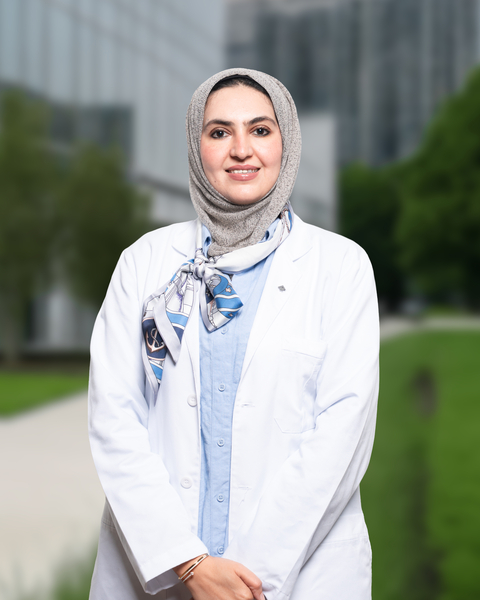 10+ years of exp
10+ years of exp
Languages
English and ArabicClinics
HealthHub - Arabian Center
HealthHub Day Surgery - Festival City
Home › Specialized Gastrointestinal Care in Dubai

Good digestive health is the foundation of overall well-being, and when it’s compromised it can affect far more than just your stomach. At HealthHub Clinics in Dubai, our Gastroenterology department provides comprehensive GI care – from preventive screening and accurate diagnosis to effective treatment and long-term management of digestive conditions. Gastroenterology is the medical specialty focused on the entire digestive tract (from the mouth and esophagus down to the rectum) and the related organs like the liver, pancreas, and gallbladder. Our expert gastroenterologists in Dubai are dedicated to protecting your digestive health through every stage, ensuring you receive personalized care whether you need a routine check-up or advanced treatment.
We emphasize preventive care as a key part of our approach. Regular screenings such as colonoscopies are crucial for early detection of issues like colon polyps or colorectal cancer. At HealthHub, we offer state-of-the-art endoscopy and colonoscopy services for timely diagnosis – detecting problems early means simpler and more effective treatments. By combining cutting-edge technology with compassionate care, our GI specialists work with you to maintain optimal digestive health and prevent serious complications before they arise.
Our gastroenterology team in Dubai is experienced in diagnosing and managing a broad spectrum of gastrointestinal (GI) conditions. We understand that digestive disorders can range from common discomforts to complex diseases. We keep explanations patient-friendly and general, but rest assured we treat all common GI conditions, including:
At HealthHub, we pride ourselves on offering cutting-edge diagnostic and treatment procedures for gastrointestinal issues. Our facilities include a dedicated endoscopy clinic in Dubai equipped with modern technology to ensure safe, accurate, and comfortable procedures. Some of our key diagnostic and therapeutic services include:
By utilizing these advanced diagnostic and treatment methods, HealthHub provides a one-stop solution for gastroenterology care in Dubai – from identifying the root cause of digestive problems to performing the necessary interventions to treat them. Our facilities adhere to international standards of quality and sterilization, ensuring you receive world-class care right here at our Dubai gastroenterology clinic.


You should consider seeing a gastroenterologist (GI specialist) if you have persistent digestive symptoms that don’t resolve or keep recurring. This includes chronic heartburn, frequent acid reflux, long-term abdominal pain or cramps, bloating, unexplained changes in bowel habits (such as ongoing diarrhea or constipation), blood in your stool, difficulty swallowing, or unexplained weight loss. These specialists are trained to diagnose and treat conditions of the entire digestive system. If in doubt, it’s better to get evaluated – timely diagnosis can prevent minor issues from becoming serious.
Mild digestive discomfort or stomach pain can often be managed with a few self-care steps. If you have indigestion or a minor stomach upset, you might try: eating bland foods (like toast, rice or bananas) in small quantities, sipping clear fluids (water or mild broth) to stay hydrated, and avoiding irritants like caffeine, alcohol, spicy or fatty foods until you feel better. Over-the-counter antacids can help neutralize stomach acid if heartburn is an issue. However, these are only short-term measures. If your pain is severe, persistent, or accompanied by alarming symptoms (vomiting, high fever, blood in vomit or stool), you should see a doctor promptly rather than just treating it at home.
Gastroesophageal Reflux Disease (GERD), chronic acid reflux, is managed through a combination of lifestyle changes and medications. Start with avoiding foods that trigger reflux (common culprits are spicy foods, citrus, chocolate, caffeine, and fatty meals) and eating smaller, more frequent meals instead of large ones. It can also help to avoid lying down immediately after eating and to elevate the head of your bed slightly if night-time reflux is a problem. Maintaining a healthy weight is beneficial, as excess weight can worsen reflux. In terms of medications, doctors often prescribe antacids, H2 blockers, or proton pump inhibitors (PPIs) to reduce stomach acid production and heal any inflammation in the esophagus. These medications can provide significant relief. In severe cases of GERD not responding to other treatments, there are advanced options like stronger medications or even minimally invasive surgical procedures to tighten the valve between the stomach and esophagus. A gastroenterologist will tailor the treatment plan to your severity and response to initial therapies.
Peptic ulcers are sores in the lining of the stomach or the first part of the small intestine (duodenum). The two most common causes are an infection by a bacteria called Helicobacter pylori (H. pylori) and long-term use of nonsteroidal anti-inflammatory drugs (NSAIDs like ibuprofen or aspirin). Contrary to popular belief, stress or spicy food alone do not cause ulcers, though they might aggravate symptoms. Treatment of peptic ulcers depends on the cause. If H. pylori is present, your doctor will prescribe a combination of antibiotics to eradicate the infection, along with proton pump inhibitor medication to reduce acid and allow the ulcer to heal. If NSAIDs are the culprit, you’ll be advised to stop or reduce those medications and similarly use acid-suppressing therapy. Most ulcers heal with proper treatment over a few weeks. It’s also important to avoid smoking and alcohol while an ulcer heals, as these can hinder the process. After treatment, follow-up may include a repeat endoscopy or non-invasive tests to ensure the ulcer has healed completely.
Colorectal cancer screening is one of the most important preventive measures in gastroenterology. For average-risk adults (no immediate family history of colorectal cancer and no symptoms), many international guidelines recommend starting screening by age 45. In some cases – for example, if you have a family history of colon cancer or polyps, or if you are of certain higher-risk ethnic groups – doctors might advise beginning earlier (sometimes at age 40).
 10+ years of exp
10+ years of exp
HealthHub - Arabian Center
HealthHub Day Surgery - Festival City